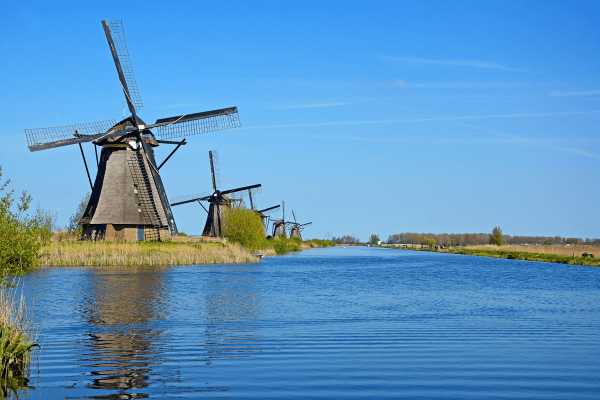Sea levels could rise by up to two metres by 2100 on the Dutch coastline – far more than previously forecast – according to an announcement from the Dutch Meteorological Institute (KNMI) on Monday.
With 26% of its landmass already below sea level, The Netherlands is particularly susceptible to climate change. Furthermore, about 50% of the country is less than one metre above the average sea level, which makes Monday's announcement all the more pertinent, Belga News Agency reports.
"The projections show a greater rise in sea levels than previously thought," the report announced just days before the COP26 climate conference opens in Glasgow. Per capita, The Netherlands is one of Europe's biggest polluters.
"If we don't cut greenhouse gas emissions, by 2100 sea levels on the Dutch coast could rise 1.2 metres above levels at the start of the century." The report adds that this could go up to 2 metres if the Antarctic ice caps melt more quickly.
The Institute had previously forecast a rise of no more than one metre but the latest forecast is based on most recent findings from the last IPCC report (August 2021) as well as the Institute's own calculations. This is the first time that a rise of two metres has been forecast.
"The time where we can control water and the earth is over," declared Rogier van de Sande, president of the Dutch Water Office that deals with water management.
"Drastic decisions will be needed to protect Dutch territory," said van de Sande. He added that dealing with, and preventing, the consequences of climate change should be the number one priority for the government.
Related News
- 'This is one of the greatest natural disasters Belgium has ever known,' says Verlinden
- Offshore wind farms could help reach climate neutrality by 2050
- 23 million chickens and 1.7 million pigs: Climate experts call for livestock cut
The Netherlands has some of the most advanced water management systems in the world, comprising numerous flood barriers and thousands of kilometres of sea walls and dunes. The country has often prided itself on these engineering feats, referring to itself as "the safest delta in the world." Yet this latest KNMI report poses a significant challenge to this security.
The COP26 climate summit takes place from 31 October to 12 November and will be a crucial moment in setting global climate policy. It aims to step up efforts to reduce world greenhouse gas emissions, yet its success has been jeopardised by the pandemic and socio-political tensions.

